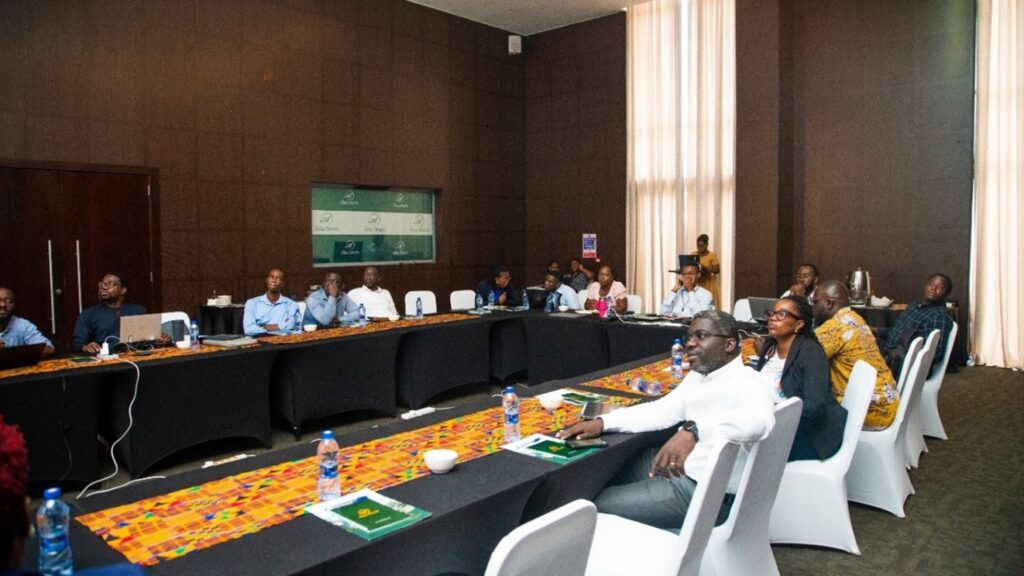- Engineers from Ghana’s national grid operator have completed a training workshop focused on renewable energy integration.
- The week-long programme delivered by GCIEP has built vital capacity within GRIDCo to independently assess proposed renewable energy projects.
- The full training programme aims to boost confidence among regulators, developers and investors to support Ghana’s target of 10% renewable energy by 2030.

Engineers and technical staff from Ghana's GRICCo complete renewable energy integration training.
A diverse team of engineers and technical staff from Ghana Grid Company Limited (GRIDCo) have successfully completed renewable energy integration training delivered by the Green Cities, Infrastructure and Energy Programme (GCIEP) on 9–13 June 2025 in Tema.
Ghana’s energy sector is in transition, with growing interest in the potential of large-scale renewable energy such as solar and wind projects and a national target of 10% renewable energy by 2030. As the output from renewable energy installations can vary depending on the weather, national grid systems must be equipped to handle this intermittency. With the increasing global emphasis on clean energy over the past few decades, all countries have had to tackle these issues, with Ghana being no exception.
The training increased GRIDCo’s capacity to assess the technical feasibility of proposed renewable energy schemes, including emerging technologies like floating solar.
Potential technical challenges that may arise from projects include voltage regulation, fault ride-through and grid instability during intermittency. The training tackled these head-on, building GRIDCo’s ability to perform stability, load flow and short-circuit analysis, all of which are critical for grid integrity.
As part of the training, the participants took part in classroom-based sessions and practical simulations, applying their learning to real-world projects, thereby enhancing their capabilities in problem-solving, systems planning and simulation.
Ultimately, the training programme aims to help boost confidence among regulators, developers and investors in Ghana’s ability to deliver bankable, technically sound renewable energy infrastructure. It also advances environmental goals by supporting clean energy integration and reduces reliance on fossil fuels.
The workshop is followed up by specific modules looking more in-depth at environmental and social impact assessment, next looking at financial modelling and finishing with regulatory and legal aspects at the end of July. These sessions will complete the full feasibility assessment training cycle, enabling GRIDCo to evaluate all critical dimensions of renewable energy projects.
The UK’s Green Cities, Infrastructure and Energy Programme is tackling climate change and extreme poverty by accelerating the delivery of sustainable green cities and climate-resilient infrastructure.
Published
07/07/25
